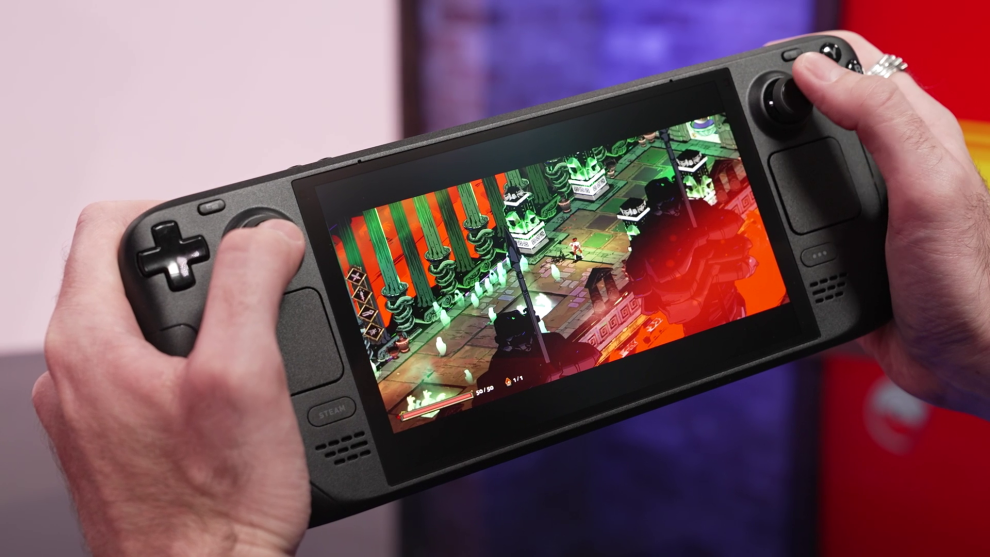Valve’s Steam Deck was a game-changer for PC gamers, offering a powerful and versatile handheld gaming experience. But the original model had one major drawback: its LCD screen. While functional, the LCD display wasn’t the most vibrant or responsive, and it could be difficult to see in bright light.
With the Steam Deck OLED, Valve has addressed this issue by upgrading to a stunning OLED display. This new display is brighter, has a faster refresh rate, and offers deeper blacks and more vibrant colors. The result is a significantly improved visual experience, making games look and feel better than ever before.
In addition to the display upgrade, the Steam Deck OLED also boasts a number of other improvements, including:
- Improved battery life: Valve claims that the Steam Deck OLED can last for up to 2-8 hours on a single charge, depending on usage. This is an improvement over the original Steam Deck, which typically lasted for 1-6 hours.
- Slightly better performance: The Steam Deck OLED is powered by the same AMD Zen 2+ APU and RDNA 2 GPU as the original model, but it has been slightly overclocked. This results in a modest performance improvement, but it’s not a night-and-day difference.
- Premium carrying case: The Steam Deck OLED comes with a new, premium carrying case that is better suited to protecting the device on the go.
Overall, the Steam Deck OLED is a significant upgrade over the original model. The improved display, battery life, and performance make it the best version of Valve’s handheld PC yet. However, it’s important to note that the Steam Deck OLED is also more expensive than the original model, starting at $399.

Here’s a closer look at the Steam Deck OLED’s key features:
OLED display
The Steam Deck OLED’s 7-inch OLED display is a major upgrade over the original model’s LCD display. It is brighter, has a faster refresh rate (60Hz), and offers deeper blacks and more vibrant colors. This makes games look and feel much better, especially in bright light.
Improved battery life
Valve claims that the Steam Deck OLED can last for up to 2-8 hours on a single charge, depending on usage. This is an improvement over the original Steam Deck, which typically lasted for 1-6 hours.
Slightly better performance
The Steam Deck OLED is powered by the same AMD Zen 2+ APU and RDNA 2 GPU as the original model, but it has been slightly overclocked. This results in a modest performance improvement, but it’s not a night-and-day difference.
Premium carrying case
The Steam Deck OLED comes with a new, premium carrying case that is better suited to protecting the device on the go.
Is the Steam Deck OLED worth the upgrade?
If you’re a PC gamer who is looking for the best possible handheld gaming experience, then the Steam Deck OLED is definitely worth considering. The improved display, battery life, and performance make it a significant upgrade over the original model. However, it’s important to note that the Steam Deck OLED is also more expensive than the original model, starting at $399.
Here are some things to consider before you buy:
- Price: The Steam Deck OLED is more expensive than the original model, starting at $399.
- Availability: The Steam Deck OLED is currently in high demand and may be difficult to find in stock.
- Performance: The Steam Deck OLED’s performance is only slightly better than the original model. If you’re not looking for the absolute best performance, then the original Steam Deck may be a better option for you.
Overall, the Steam Deck OLED is a great upgrade for PC gamers who are looking for the best possible handheld gaming experience. However, the higher price tag and potential availability issues may make it a less attractive option for some gamers.
















Add Comment